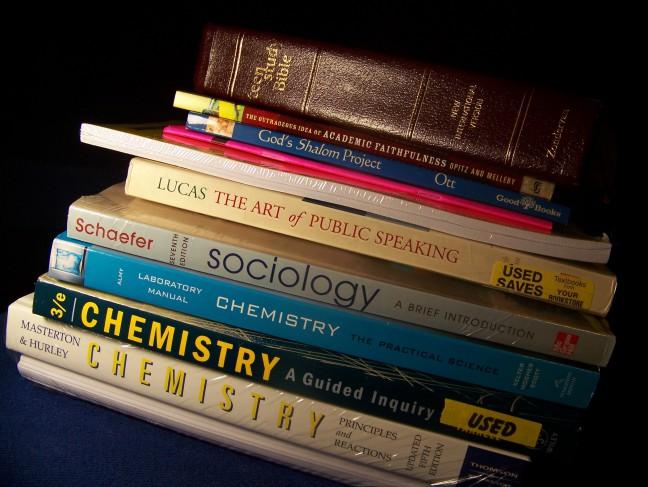A recent student-led initiative at the University of Wisconsin seeks to reduce and ban supplementary materials students are often required to purchase in addition to textbooks for classes.
The textbook affordability resolution includes language that would ban iClickers as well as programs like Tophat and MasteringChemistry, Colin Barushok, member of Student Services Finance Committee and co-author of the resolution, said. These materials are required purchases to receive a grade in many UW courses.
“The issue is very uncontroversial because we do not need to convince people that this makes sense,” Barushok said. “We just need people to know about it and jump on board.”
Associated Students of Madison passed the resolution March 3 and it is now on the Faculty Senate agenda. Students are currently trying to raise awareness about the resolution throughout campus.
UW has been trying to address the problem already, Steven Cramer, vice provost for teaching and learning, said.
Cramer said UW has negotiated university-wide contracts with outside companies to provide services at a cheaper rate for students. While the resolution does not fully address the problem, it is a step in the right direction, he said.
“Right now many of these products, such as mastersinchemistry.com, are at a department level and that product has very little tie to the university,” Cramer said. “We are looking for much more integrated set of tools that are more within the University System [and] within student digital environment, where we are in a better position to negotiate terms.”
UW is also looking to utilize digital tools, such as Canvas, to meet supplementary needs in a cost-effective way for students, Cramer said.
UW is also looking at more fair and equitable ways to incorporate these additional classroom costs into students’ financial aid packages, he said.
UW staff will spend the next several months reviewing system policies that could make it difficult for UW to provide some of these services. But it remains unclear whether the policies must be changed or whether it is a matter of interpretation, Cramer said.
“Textbook affordability impacts everybody,” he said. “The challenge that we have is that textbooks are changing.”
The way students are learning is changing as they incorporate software tools and homework sets in addition to textbooks, Cramer said. The challenge is that students must now buy the textbook and the software and students have no choice in paying these additional fees, he said.
Barushok said the extra costs students pay in addition to their textbooks are not trivial, and can add up to more than $100 per semester depending on the course.
“If there is something that is required for a class that you can’t get through some other method, they should be banned,” Barushok said.
The Faculty Senate will vote on the resolution April 4.


